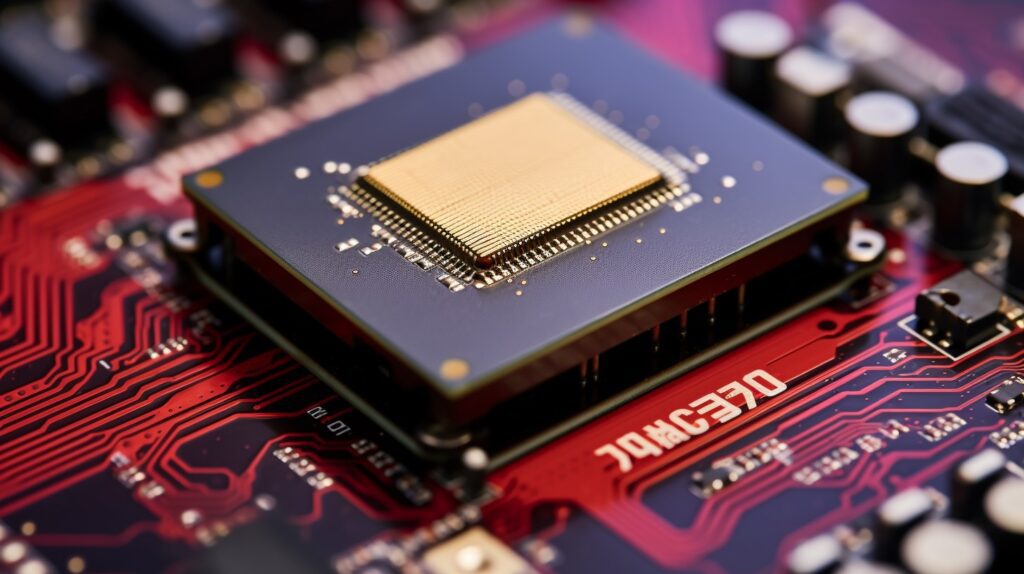|
Getting your Trinity Audio player ready...
|
In the face of U.S. curbs on the sales of advanced artificial chips by Nvidia, Chinese tech giant Huawei is poised to capture a larger share of the market, with sources revealing a substantial AI chip order from Baidu. As Huawei continues to diversify its offerings beyond telecoms and smartphones, its Ascend AI chip series, particularly the Ascend 910B, has emerged as a promising rival to Nvidia’s A100 chip.
Huawei’s Entry into the AI Chip Business
Huawei’s foray into the AI chip industry began in 2018 when it unveiled the Ascend 910 chip, officially launched in 2019. This strategic move aimed to build a comprehensive AI portfolio, positioning Huawei as a significant provider of computing power. At that time, the company faced U.S. export controls, marking the beginning of its ambitious AI chip venture.
Huawei’s Ascend 910 boasted impressive capabilities, claiming to be the world’s most powerful AI processor, manufactured on a 7-nanometer process. The chip could deliver 256 TeraFLOPS for half-precision floating point (FP16) operations and 512 TeraOPS for integer precision calculations (INT8). It was praised for its efficiency, with a maximum power consumption of 310W, below Huawei’s original target of 350W.
Despite these advancements, Huawei’s Ascend 910 faced stiff competition from Nvidia, which introduced the A100 and H100 chips in 2020 and 2022, respectively, dominating the global AI chip market. Nvidia’s incumbent advantage included a well-established software ecosystem, whereas Huawei’s ecosystem, CANN, was considered more limited in terms of AI model training capabilities.
The Ascend 910B: Huawei’s Latest Offering
Although Huawei has not officially announced the Ascend 910B, details about the chip have surfaced through public comments by Chinese companies and academics, as well as technical guides on Huawei’s website. In August, the chairman of Chinese AI giant iFlyTek, Liu Qingfeng, praised Huawei for producing a GPU that he claimed was “basically the same as Nvidia’s A100,” hinting at a hardware collaboration with Huawei, later confirmed to be powered by the Ascend 910B.
Documents related to the Ascend 910B, including driver and firmware upgrade guides, began appearing on Huawei’s website in August. During iFlyTek’s earnings call, Senior Vice President Jiang Tao asserted that the Ascend 910B’s capabilities were “comparable to Nvidia’s A100.” Baidu, in a significant move, ordered 1,600 Huawei 910B chips for 200 servers in August.
While analysts and sources acknowledge that the 910B chips are on par with Nvidia’s in terms of raw computing power, they still lag behind in performance. Nevertheless, they are considered the most advanced domestic option available in China.
The Significance for Huawei and China
The AI chip market in China is estimated to be worth $7 billion, and Huawei’s efforts to gain market share from Nvidia could signal a significant victory for the Chinese tech giant and a boost for the nation. Huawei has expressed its ambition to become a primary provider of computing power for AI, with Chief Financial Officer Meng Wanzhou stating in September the company’s desire to establish a computing base for China, offering the world a “second option,” indirectly challenging the dominant U.S. provider.
In the absence of Nvidia chips due to U.S. restrictions, Chinese AI firms may need to rely on domestic products like Huawei’s less powerful chips. However, experts believe that Huawei may eventually close this performance gap, given the substantial support and investment from the Chinese government in the fields of AI and semiconductors. This transition represents an exciting shift in the dynamics of the AI chip market, with Huawei emerging as a formidable competitor, poised to challenge Nvidia’s supremacy.
